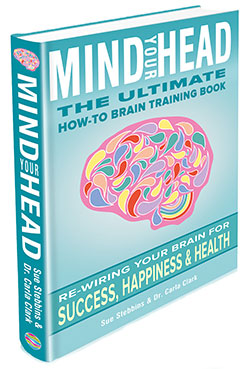The Multidimensional Spectrum of Imagination
Nigel J.T. Thomas
1 | 2 | 3 | 4 | 5 | 6 | 7 | 8 | 9 | 10
Page 1
Source : http://www.imagery-imagination.com/spectrum.htm
Abstract
A comprehensive theory of the structure and cognitive function of the human imagination, and its relationship to perceptual experience, is developed, largely through a critique of the account propounded in Colin McGinn's Mindsight. McGinn eschews the highly deflationary (and unilluminating) views of imagination common amongst analytical philosophers, but fails to develop his own account satisfactorily because (owing to a scientifically outmoded understanding of visual perception) he draws an excessively sharp, qualitative distinction between imagination and perception (following Wittgenstein, Sartre, and others), and because of his fatally flawed, empirically ungrounded conception of hallucination. In fact, however, an understanding of perception informed by modern visual science will enable us to unify our accounts of perception, mental imagery, dreaming, hallucination, creativity, and other aspects of imagination within a single coherent theoretical framework.
Imagination is a concept far more frequently invoked than it is analyzed, even by philosophers. Brann (1991) calls it the "missing mystery" of philosophy: it plays a pivotal role in the epistemologies of many, diverse philosophers – from Aristotle to Hume, from Kant to Bachelard and Popper, and in contemporary philosophical movements such as simulation theory – but this role is rarely highlighted, and still more rarely satisfactorily explained.
In the wider culture too, "imagination" is a word of power. Indeed, McFarland (1985) suggests that in recent times it has taken over many of the functions once served by "soul". We seem to be forever being told that all good things (from anti-terrorist preparedness to iPhone apps) come from the imagination, and that cultural apocalypse looms if we continue to allow our educational system (or video games, or the internet, or over-scheduling, or whatever) to stunt the imaginations of the coming generation (e.g., Ouellette, 2007). No less a cultural icon than Einstein is often said to have asserted that "imagination is more important than knowledge." On the other hand, parents and teachers warn children not to let their imaginations run away with them, and if people sincerely claim to have had experiences that we find incredible (such as having been abducted by aliens), we dismiss the experiences as mere figments of their imagination. It was because of usages such as this, presumably, that Pascal called imagination "that mistress of error and falsehood," an "arrogant faculty, the enemy of reason" (Pensées §2 #82: Lafuma, 1960). Deep cultural ambivalence about imagination has a long history (Kearney, 1988; Brann, 1991); no wonder the Renaissance philosopher Gianfrancesco Pico della Mirandola was driven to the conclusion that "not only all the good, universally, but also all the bad, can be derived from the imagination" (c.1500).
Deflation or Inflation?
Although the word "imagination" is heard frequently enough, both in scholarly and lay discourse, its meaning, once we pay attention to it, is often far from clear. It seems to be an indispensable psychological concept (it has certainly survived in our folk-psychological vocabulary for a very long time), but it has an air of the unscientific, even the occult, about it that often renders it suspect to those who pride themselves on their rationality. Daston has gone so far as to write of a history of "fear and loathing of the imagination" in scientific circles (1998). On the rare occasions that contemporary scientists have ventured to grapple with this treacherous concept, they have almost invariably wound up focusing on just one, or a very few, idiosyncratically chosen aspects of its seemingly protean, multifaceted nature (Thomas, 2003).
Analytical philosophers often see themselves as being in the business of clarifying concepts, so one might think that they would see a real opportunity to do something useful here. In fact, however, some of the "fear and loathing" of the scientists seems to have rubbed off on them, and few have paid it much serious attention. The limited attention it has received, has come more from aestheticians rather than philosophers of mind or epistemologists. Inasmuch as there is any consensus view of imagination in analytical philosophy circles, it is deeply deflationary. Some think of "imagination" as a polysemous word, nothing but a label we apply indiscriminately to a motley collection of mental capacities that are united by little more than the fact that they are poorly understood (e.g., Ryle, 1949; Flew, 1953; Sparshott, 1990; Stevenson, 2003). For others, the word is just an explanatorily empty way of referring to our ability to conceive of what is conceivable (e.g., Rorty, 1988; White, 1990; Nozick, 1993; Nichols & Stich, 2000). Although one or other of these views is very often taken for granted (and the second has begun to spread, unexamined, into cognitive science (Byrne, 2005)), real arguments in support of either of them are few and far between. Arguments for the polysemy view tend to amount to little more than the listing of a bunch of apparently diverse usages of the verb "to imagine" and, as it were, throwing up the hands in despair; the view that imagination is the faculty of conceiving of the conceivable (i.e., of things that are conceptually possible) is usually simply asserted. White (1990), may be the only philosopher to have published a systematic defense of deflationism. He firmly rejects the polysemy view, but makes a real case for the idea that "imagination" has no conceptual connection whatsoever with mental imagery, and always and everywhere just means the capacity to conceive of conceptual possibilities. Admittedly, this does seem to encompass the extensionof the wide variety of usages of "imagination" (and related words, such as "imagine" and "imaginative") quite well. However, as when featherless biped is offered as a definition of "human being," it leaves the feeling that the essence of the concept has been missed, and thereby insinuates the radically deflationist view that imagination has no essence, that it does not really exist. I have rebutted White's arguments, which mostly rest upon his intuitions about correct English usage, in some detail elsewhere (Thomas, 1997), so I will not further address them here.
More than likely, much of the motivation behind deflationism, and behind much of the scientific wariness of imagination too, lies in a delayed reaction against the rhetorical excesses of the Romantic movement. In their own reaction against the "Age of Reason," Romantic thinkers seized upon what had long been considered a necessary but relatively humble (not to say untrustworthy) faculty of the human mind, and, notoriously, virtually deified it. Formerly seen as ancillary and (when functioning properly) subordinate to reason, imagination became the "substance" to which reason is but the "shadow" (Shelley); not only "absolute power/ And clearest insight, amplitude of mind,/ And Reason in her most exalted mood" (Wordsworth), but "the Divine Vision and Fruition / In which Man liveth eternally" (Blake), and "the living power and prime agent of all human perception, . . . a repetition in the finite mind of the eternal act of creation in the infinite I AM" (Coleridge). As this once humble faculty was valorized out of all recognition, it also changed from being something that was merely unexplained, into something that should not be explained, something ineffable and sacramentally mysterious. Some two centuries later, this Romantic conception of imagination (or its degenerate descendants) continues to have enormous popular influence. The once striking tropes of Romanticism have become stale clichés, and while some still cling to them, and continue to repeat hyperbolic claims about imagination, those of more meticulous sensibilities may recoil, and begin to regard the very concept as suspect.
1 | 2 | 3 | 4 | 5 | 6 | 7 | 8 | 9 | 10
We Make it Easy to Succeed
Successwaves, Intl.
Brain Based Accelerated Success Audios
 |






